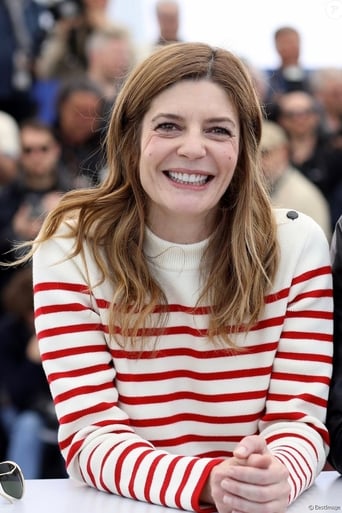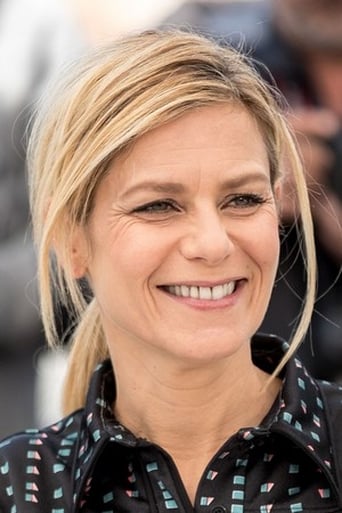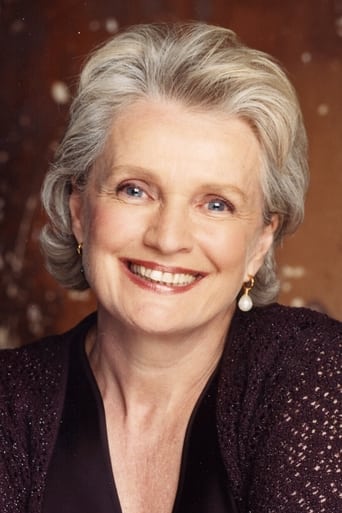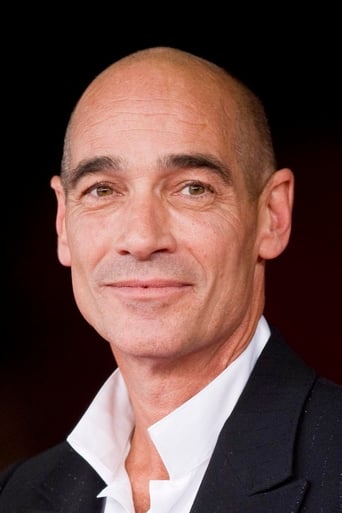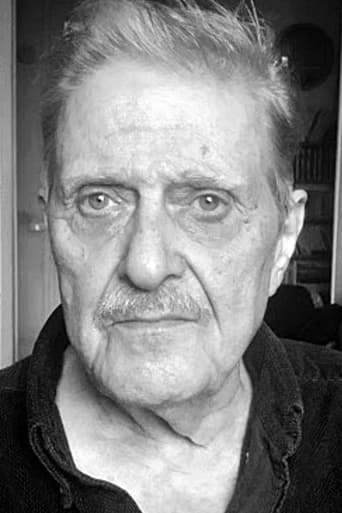Scanialara
You won't be disappointed!
FuzzyTagz
If the ambition is to provide two hours of instantly forgettable, popcorn-munching escapism, it succeeds.
Brendon Jones
It’s fine. It's literally the definition of a fine movie. You’ve seen it before, you know every beat and outcome before the characters even do. Only question is how much escapism you’re looking for.
Brennan Camacho
Mostly, the movie is committed to the value of a good time.
jotix100
As we meet Lena, she is preparing to take a train trip to her parents' country home with her two children. At the Gare Montparnasse, she discovers that Anton, her oldest son, has disappeared, probably a mother's worst nightmare. Alas, the boy has been distracted by a wounded bird near the news shop. Against her better judgment, Lena takes the bird with her to appease her son.At her parents' house, she meets her sister Frederique and her husband, her brother Gulven and his girlfriend. The parents are preparing to go on a trip to Italy. The father is suffering from the onset of what might be a fatal neurological unexplained disease. Despite the serene setting, Lena is an unhappy camper. She is a heavy smoker, a bundle of nerves, finding herself divorced with no apparent prospects for a good job, or a meaningful relationship.As the parents go on their trip, Anton, who loves reading, one evening tells a story he had just read from a local Breton writer. It is a folk tale that is enacted by local people in their traditional costumes. The tale is about a girl who is looking for a man that can keep up with her own passion for dancing. We watch as three young men drop to their deaths after the strenuous steps required from them, while the girl keeps on her unending dancing. Finally she meets a youth, all dressed in red, who is much better at this than she will ever be. He represents a devil. The young woman dies.The scene changes back to Paris where Lena is now settled after her summer in the country. She is working for a florist that has little patience for Lena's own domestic responsibilities. A younger man, Simon, who has been in and out of her life, reappears. The patient ex husband, Nigel, can stay with his kids while Lena goes for a tryst with her man. Lena is clearly a deeply disturbed woman who cannot find peace in her own life, much less share it with another man. Anton, a sensitive kid suffers the most in seeing a no-win situation from which he cannot escape, something that leads him to do a desperate act, perhaps to get attention to what his mother is doing to the family.The film by Christophe Honore keeps on reminding us of another French filmmaker, Arnaud Desplechin, whose films are an obvious influence to this director. That said, one wants to give Mr. Honore credit for what he tried to accomplish, but the problem is that Lena is a woman who will tax anyone's patience. Lena has not a clear idea of what is happening to her. She takes it on her philandering American former husband, Nigel, whom she has divorced, but has remained on somewhat friendlier terms with his ex-wife. There are things that do not make a lot of sense. For instance, the pregnant Frederique, one assumes has left her own marriage when she resurfaces in Paris, having given birth, we imagine, for she is not pregnant any more. There is Simon, a man who is basically an enigma, the way Mr. Honore wrote the character. For that matter, the only happy people are the parents, especially Annie, who is dealing in her own way with what will be her own tragedy when her husband is not around. Trying to keep this dysfunctional family in place, can drive Annie, and her husband Michel insane. In our humble opinion, the insertion of the folk legend is distracting, because it is completely unrelated to what one has seen. Perhaps it serves to separate two periods in Lena's life. It does not add anything to the narrative, and comparing the young dancer with Lena it is a bit far fetched.The revelation in the film is Chiara Mastroianni an actress that has been overshadowed by her more famous parents. She makes the most of her role, even if Lena keeps getting on the viewer's nerves because of the inner conflicts within her. Marie-Christine Barrault, the wonderful heroine of "Cousin Cousine" and "Ma Nuit Chez Maud", just to mention two of her most famous films, appears as Annie, the mother that is witnessing the disintegration of her family. Martina Fois, Jean-Marc Barr, Fred Ulysse, Louis Garrel, and Julien Honore, the director's brother are seen in supporting roles.
rodolphefleury
I always admired Christophe Honoré's films, but Ma Mere (but I cannot watch film about incest, it makes me sick)but this was dreadful, the acting is strong, the camera work and cinematography are amazing, it's admiringly shot but the story is awfulI understand being a single mum is difficult and your family can be a burden, but 100 minutes of hysterical ramblings does not make a film. I don't care about plots but this film perhaps needed one. This film lasts 100 minutes but feels like 3 hours of sheer torture. Most of the scenes are meaningless and doesn't serve the film. The dialogues sometimes feel like they've been written by a 12 years old Pete Doherty fan. There's too many things cramped into one film, and it needed to be more simple, to have less dialogues, concentrate on fewest characters. The film despite some great locations was overlong and bored me to death when it didn't' irritate me. I don't think it was mature at all. It just didn't work at all. The film is a mess.My message to Christophe Honoré; Less is More.
Chris Knipp
A plunge into Arnaud Desplechin territory, Variety calls this film, comparing it unfavorably to the latter's recent A Christmas Tale. True, there is an unruly family gathering around the older parents, who are affectionate, and one of them seriously ill, just as in Desplechin's film. But it's not Christmas, and that's not the whole focus. The genesis of Making Plans for Léna/Non ma fille, tu n'iras pas danser lies in several things. Honoré wanted to make a movie around Chiara Mastroianni. Having completed what he now calls his "Paris trilogy" -- Dans Paris, Love Songs, and La Belle Personne -- and now being married with a daughter, he wanted to return to his native Brittany and focus on family, children, the role of women. And so, collaborating on the script with the writer Genevieve Brisac, he has made a more mature and many-layered work than he has ever done before.It naturally lacks the charm, the focus, the elegance and the fabulous quality of his Paris films, which deal with idealized or imaginary families and romanticized, amusing, frivolous young men, as represented by his alter ego, Louis Garrel. Garrel appears fleetingly here as Simon, Léna's (Mastroianni's) younger lover or would-be lover. Typically, he plays his almost throwaway role with lightness and verve, bringing welcome moments of fun into what is, after all, for the most part a pretty heavy flick.Taking her two children to the country to stay with her parents (Marie-Christine Barrault and Fred Ulysse, seen as both annoying and sexy), she encounters her ex-husband, the American Nigel (Jean-Marc Barr). On hand is her playful younger brother Gulven (played by the director's own brother Julien Honoré). Her sister (Marina Foïs) is fighting with her husband (Jean-Baptiste Fonck) and seems on the verge of divorce. Léna comes on the scene as one who can't cope: she momentarily loses her son Anton (Donatien Suner) in the Gare Montparnasse train station before ever leaving Paris. Then she agrees to take away the sick bird they've found but puts it in a bag that kills it. As in Honoré's Love Songs, Mastroianni is continually troubled and sad and overwhelmed. But this is the much bigger role that Honoré wanted to give her. As Variety reviewer Jordan Mintzer writes of this career-capping performance, Mastroianni "manages to channel real energy into her character early on, making for a strong performance reminiscent of both Emmannuelle Devos in (Desplechin's) Kings and Queen and Gena Rowland's unruly protags in the films of John Cassavettes." And the thing is, the other principal actors are also in top form and some of their best work.The irony is that everyone else in the family wants to make Léna happy, and all this "making plans" for her makes her feel put-upon and overwhelmed. She wavers back and forth about whether to leave, with or without the children, and carries her worries about her role in life back with her to Paris.Anton is more articulate and calm than Léna is (and we get to see children really tormented by watching the desperate honesty of adults). In the country, he and Lena go on a walk and he recounts a Breton tale, of Katell Gollet (Katel the Lost). The story is dramatized by figures in traditional Breton costume enacting a festival where Katell torments young men by making them dance to death and winds up marrying the devil to defy her father.This strange but powerful interlude divides the film in two. Afterwards it returns to Paris and to Léna's continuing difficulty coping in her own life, wither taking care of the kids or her demanding job at a big florist shop that requires her to do wholesale buying and delivery service for an unsympathetic boss (Caroline Sihol).This has been seen by French critics as a feminist film, and it focuses primarily on how overburdened the modern woman is. But men are not demonized. When Léna can't pick up her children because of a delivery to a cemetery, Nigel immediately steps in to help. But there still comes a literally shattering moment for Anton.Making Plans for Léna, which is being released in the US by IFC Films, surprises with its complexity after the New Wave-ish, stylish and relatively brittle Paris trilogy with a rounded, complex, mature work that takes Christophe Honoré to a new level. Long overshadowed by her illustrious parents, the film icons Marcello Mastroianni and Catherine Deneuve ever since her small part was cut out of a Fellini film when she was eight years old, Chiara Mastroianni here finally has the opportunity to carry a film with a rich and complex role.Non ma fille, tu n'iras pas danser opened September 3 in Paris to excellent reviews. IFC release in the USA. Shown as part of the Rendez-Vous with French Cinema at Lincoln Center, New York, March 2010.
guy-bellinger
This is only the second picture by Christophe Honoré I have seen and I must say I felt as confused after watching "Non ma fille tu n'iras pas danser" as I had been three years before while I was leaving the theater showing 'Dans Paris'. In 2006, I had not really understood the deeper motives of Paul and of his brother Jonathan, the main characters of "Dans Paris". Nor do I identify now with Léna, the main protagonist of "Non ma fille, tu n'iras pas danser", with her sister Frédérique, her brother Gulven, her parents Annie and Michel. Is it me or has Honoré been unable to examine the behavior of his characters reliably enough?What I can say after viewing these two films is that on the one hand there is obvious consistency in the choice of themes: both movies deal with an unwanted family gathering; family relationships; dysfunctional couples; the difficulty to come to terms with the real person in you; depression; the looming ghost of death. The tone in the two films is comparable as well: moody bordering on desperation with flashes of burlesque. On the other hand, the two films have the same weak points as far as the narrative is concerned. In 'Dans Paris', Romain Duris broods for hours while Louis Garrel endlessly wanders round Paris. To be fair, there is a little more to it, but just about. 'Non ma fille' has a more interesting plot: Lena, who just can't live with Nigel, her husband, any more because he cheats on her, leaves the marital home in Paris with her two children and takes refuge at her parents' house in Brittany. There, she tries to reconstruct her life, having to fight against her family members, who feel entitled to control her life. But despite this exciting starting point, I could never really relate to the film or sympathize with any of the characters, except maybe with the most consistent of them all, Nigel, who, granted, is an unfaithful husband, but who is prepared to do anything for the sake of his children. I think in fact that consistency (or rather the lack of it) is the key word accounting for my dissatisfaction with this film. For if there IS consistency BETWEEN "Dans Paris" and "Non ma fille" there is actually NO consistency WITHIN either of them. "Dans Paris" amounts to a more or less random series of sequences: a secondary character speaking into the camera telling us he will be the narrator; a very theatrical breakup scene; Romain Duris singing badly to a Kim Wilde CD; Jonathan taking half an hour of the film heading to the Bon Marché, screwing three chicks in the meantime; Romain Duris moping for even longer; a very amusing scene featuring Guy Marchand, the father, and Marie-France Pisier, a botched ending, and that is about all. The same inconsistencies plague the second film. For instance, fifteen minutes or so into the film, Michel, the father becomes the narrator - but for one sequence only; when the magpie saved by Lena at the request of her kids dies, she buries it in a panic but the subject is never tackled again; at a time we learn that Michel suffers from a serious illness but there will be no more allusion to this fact; in most sequences Michel and Annie (the parents) quarrel and seem to hate each other's guts while in others they make love like youthful lovers and share a real complicity; the narration is interrupted by an ancient Breton tale featuring a young woman who causes the death of her suitors(what is it supposed to mean: Lena is considered by others as a witch? Lena IS a witch?); we never know what Frédérique blames her husband for, she keeps saying she will have a divorce before announcing by the end of the film that she does not want a divorce after all…; and so on and so on.How can you have sympathy (or antipathy) for characters that are so poorly delineated? You can't actually. You remain unconcerned and little by little you become bored first and annoyed as time goes by. Even worse is the director's pretension: in each shot, he makes you feel how important the subject is, how admirable his (and co-writer Geneviève Brisac's) rebellious Lena is. To my mind, a little more modesty and a little more hard work on the continuity would have been welcome.Nevertheless "Non ma fille tu n'iras pas danser" is not a complete failure, 'Dans Paris' was not either. For both films are saved by their actors: Guy Marchand and Marie-France Pisier were exceptional in the 2006 movie. And in "Non ma fille" the whole cast is to be congratulated. Chiara Mastroianni - it goes without saying - gives a remarkably dedicated performance as Lena. She really sinks into her part, even if the character she embodies is fairly irritating and if she cries too much in the last part (but Christophe Honoré is to be blamed for that, not her). And if there is one thing the filmmaker can be credited for, it is his love for aging actors and actresses, somewhat forgotten or little known: it is indeed a pleasure to see Marie-Christine Barrault on the big screen again and she is really excellent as Lena's possessive mother. Face to her, Fred Ulysse (mainly a stage actor) gives an amazingly natural performance. And Julien Honoré, the director's brother, is a discovery as Lena's joking (but not so sympathetic) brother.There are also some nice views of Brittany, the native region of Christophe Honoré. But these qualities do not save such an ill-written film from boredom. It seems to me Christophe Honoré makes too many films too fast. Let him follow the example of Claude Sautet. Sautet, who was not the prolific kind, could have made this film. The only difference is that it would have been ... made to perfection.

